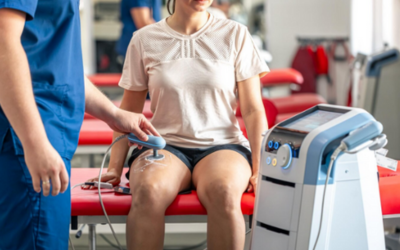In India as well, cancer registries show a slow but steady increase in the younger age groups, particularly the late 20s to early 40s. This trend needs to be addressed forthwith—both by the medical fraternity and by the public.
“Young adults get misdiagnosed or diagnosed late because people assume they’re too young to get cancer,”
says Dr. Mohan Menon, an American board-certified medical oncologist based in Mumbai, India. “That delay can have a big impact on the treatment. Awareness is important.”
Dr. Mohan Menon is a world-renowned oncologist known for his innovative customized treatment methods and specialization in gastrointestinal cancers. With years of practice, he has been a staunch supporter of early detection and proactive treatment of young adults with colorectal cancer to provide them with adequate and timely treatment.
Let’s delve into the rising stats and understand why more young people are being affected by colorectal cancer today.
The Alarming Rise of Colorectal Cancer in Young Adults
In recent years, the number of young adults with colorectal cancer has been rising steadily. This trend is especially shocking because colorectal cancer has long been associated with older age. Numerous studies now validate a 1-2% annual increment in incidence in individuals below the age of 50 globally, as well as in urban India.
What is most concerning is that colorectal cancer in young people tends to go undetected until the disease has reached an advanced stage. One reason is that symptoms are frequently misattributed to less severe conditions like hemorrhoids or IBS. Unlike older patients who undergo routine screenings, younger individuals typically don’t undergo preventive colonoscopies, which increases the chances of a late-stage diagnosis.
The rising numbers have prompted oncologists and researchers to reassess screening guidelines and increase public awareness campaigns targeting younger demographics.
Are you brushing off symptoms that could be more serious than they seem? Let’s explore the key signs of colorectal cancer in young adults that should never be ignored.
Common Symptoms Young Adults Shouldn’t Ignore
The early warning signs of colorectal cancer in young adults are subtle and may be easily dismissed. Some of these symptoms should not be ignored:
- Recurring Bowel Habit Changes: Diarrhea, constipation, or alteration in stool consistency for more than a few weeks.
- Bleeding from the Rectum: Any stool blood—bright red or dark—must be evaluated.
- Unexplained Weight Loss: Losing weight without any change in diet or physical activity could signal an underlying issue.
- Persistent Abdominal Discomfort: Cramping, gas, or pain that doesn’t go away.
- Fatigue and Weakness: A general feeling of tiredness not explained by lifestyle factors.
- A Feeling of Incomplete Evacuation: Having the sensation that you must have a bowel movement, even after one.
- Narrow or Pencil-Thin Stools: Unusual stool shape may signify blockage or growth.
- Iron Deficiency Anemia: Abnormally low iron without an obvious reason should trigger alarm.
Curious why colorectal cancer is striking more young adults than ever? Let’s review the possible risk factors that might make youth more susceptible.
Risk Factors in Younger Populations
While the definitive cause of rising colorectal cancer in youth is yet to be researched, some risk factors have been established:
- Genetic Predisposition:
Conditions like Lynch syndrome and familial adenomatous polyposis (FAP) significantly raise the risk.
- Inflammatory Bowel Diseases:
Chronic conditions such as Crohn’s disease or ulcerative colitis increase long-term risk.
- Poor Dietary Habits:
Diets high in processed foods, low fiber, and low fruits and vegetables are significant contributors.
- Sedentary Lifestyle:
Lack of physical exercise has been associated with several forms of cancer, including colorectal.
- Obesity:
Increased body mass index (BMI) is strongly associated with increased risk.
- Alcohol and Tobacco Consumption:
Both are known carcinogens that increase the risk of colorectal cancers.
- Environmental Contaminants and Stress:
Urban residence and stress could contribute as well but more research is necessary.
- Overuse of Antibiotics:
There is new evidence indicating a connection between colorectal cancer development and early and common use of antibiotics.
Let’s discuss the diagnostic tools and staging process that help guide treatment.
Diagnosis and Staging in Younger Adults
Early detection is all it takes when it comes to diagnosing colon cancer in young people. The processes are as follows:
- Colonoscopy:
A visual inspection of the colon with the aid of a flexible tube-like camera. It detects polyps or tumors.
- Biopsy:
Suspicious tissue is biopsied during a colonoscopy for microscopic analysis to verify cancer.
- CT or MRI Scans:
Imaging modalities assist in determining whether and where the cancer has spread.
- Blood Tests:
Including complete blood count (CBC) and tumor markers like CEA (Carcinoembryonic Antigen).
The staging is established using the TNM system:
- Stage 0–1: Local growth; often curable by surgery.
- Stage 2–3: Involvement of nearby lymph nodes; may require chemo/radiation.
- Stage 4: Distant metastasis; more complex treatments needed.
Curious about how colorectal cancer is treated in younger patients? Let’s explore the modern, personalized options available for effective care.
Treatment Options for Young Patients
Treatment plans for young adults with colorectal cancer are customized based on stage, location, and genetic profile. Common options include:

Surgery:
Often the first line of treatment to remove localized tumors or affected sections of the colon.
Chemotherapy:
Drugs that kill cancer cells or prevent their growth, especially useful in stage 2 and beyond.

Radiation Therapy:
Common for rectal cancers, often used before or after surgery to shrink tumors.
Targeted Therapy:
Drugs that attack specific cancer cell markers with fewer side effects than chemotherapy.
Immunotherapy:
Stimulates the body’s immune system to fight cancer, especially in cancers with high microsatellite instability (MSI-H).

Fertility Preservation:
Especially crucial for young adults planning to start a family. Fertility counseling is recommended before treatment begins.
Conclusion
The rise in colorectal cancer under age 50 is a wake-up call. While lifestyle and genetics play a role, awareness, early diagnosis, and expert care can significantly alter the outcome. Young people must understand that cancer does not discriminate by age. If you experience persistent digestive symptoms, don’t dismiss them.
As a trusted medical oncologist in Mumbai, India, Dr. Mohan Menon is dedicated to guiding patients through early detection and personalized, effective treatment strategies. Whether you’re seeking a second opinion or exploring a preventive health plan, his expertise can be a lifeline.
Frequently Asked Questions
Can someone in their 20s or 30s get colon cancer?
Yes, although rare, colon cancer can and does affect people in their 20s and 30s.
What are early symptoms of colorectal cancer in young people?
Common symptoms include changes in bowel habits, rectal bleeding, abdominal pain, and unexplained weight loss.
Is colorectal cancer more aggressive in young adults?
Studies suggest it may be biologically more aggressive and often diagnosed at later stages in young adults.
Should I get screened even if I have no family history?
Yes, if you have symptoms or other risk factors, screening is recommended even without a family history.
How can young people reduce their risk?
Maintain a balanced diet, exercise regularly, avoid tobacco and alcohol, and address symptoms early.
Reference links:
https://www.cancer.gov/news-events/cancer-currents-blog/2020/colorectal-cancer-rising-younger-adults
https://www.cancerresearch.org/blog/colorectal-cancer-awareness-month
Disclaimer: The information shared in this content is for educational purposes and not for promotional use.








